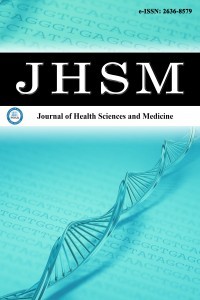1.
Chen B, Wang X, Pan D, Wang J. Global trends and hotspots in the association between chronic kidney disease and cardiovascular diseases: a bibliometric analysis from 2010 to 2023. Cardiorenal Med. 2025;15(1): 1-20. doi:10.1159/000542441
2.
Wang J, Su Y, Li Y, Su T, Li Y. A bibliometric analysis of research hotspots and frontiers in diabetes and cardiovascular disease comorbidity from 2005 to 2024. medRxiv. 2024;2024:9. doi.org/10.1101/ 2024.09.29.24314577
3.
Chen L, Ma S, Hu D, et al. Bibliometric study of sodium glucose cotransporter 2 inhibitors in cardiovascular research. Front Pharmacol. 2020;11:561494. doi:10.3389/fphar.2020.561494
4.
Abdul-Ghani M, Del Prato S, Chilton R, DeFronzo RA. SGLT2 inhibitors and cardiovascular risk: lessons learned from the EMPA-REG outcome study. Diabetes Care. 2016;39(5):717-725. doi:10.2337/dc16-0041
5.
McGuire DK, Shih WJ, Cosentino F, et al. Association of SGLT2 inhibitors with cardiovascular and kidney outcomes in patients with type 2 diabetes: a meta-analysis. JAMA Cardiol. 2021;6(2):148-158. doi: 10.1001/jamacardio.2020.4511
6.
Zou CY, Liu XK, Sang YQ, Wang B, Liang J. Effects of SGLT2 inhibitors on cardiovascular outcomes and mortality in type 2 diabetes: a meta-analysis. Medicine (Baltimore). 2019;98(49):e18245. doi:10.1097/MD. 0000000000018245
7.
Pan R, He Y, Melisandre W, et al. Bibliometric and visual analysis of SGLT2 inhibitors in cardiovascular diseases. Front Pharmacol. 2024;15: 1437760. doi:10.3389/fphar.2024.1437760
8.
Cardoso R, Graffunder FP, Ternes CM, et al. SGLT2 inhibitors decrease cardiovascular death and heart failure hospitalizations in patients with heart failure: a systematic review and meta-analysis. EClinicalMedicine. 2021;36:100885. doi:10.1016/j.eclinm.2021.100933
9.
Heidenreich PA, Bozkurt B, Aguilar D, et al. 2022 AHA/ACC/HFSA guideline for the management of heart failure: a report of the American College of Cardiology/American Heart Association Joint Committee on Clinical Practice Guidelines. J Am Coll Cardiol. 2022;79(17):e263-e421. doi:10.1016/j.jacc.2021.12.012
10.
Cherney DZ, Perkins BA, Soleymanlou N, et al. Renal hemodynamic effect of sodium-glucose cotransporter 2 inhibition in patients with type 1 diabetes mellitus. Circulation. 2014;129(5):587-597. doi:10.1161/CIRCULATIONAHA.113.005081
11.
Heerspink HJ, Perkins BA, Fitchett DH, Husain M, Cherney DZ. Sodium glucose cotransporter 2 inhibitors in the treatment of diabetes mellitus: cardiovascular and kidney effects, potential mechanisms, and clinical applications. Circulation. 2016;134(10):752-772. doi:10.1161/CIRCULATIONAHA.116.021887
12.
McGuire DK, Shih WJ, Cosentino F, et al. Association of SGLT2 inhibitors with cardiovascular and kidney outcomes in patients with type 2 diabetes: a meta-analysis. JAMA Cardiol. 2021;6(2):148-158. doi: 10.1001/jamacardio.2020.4511
13.
Lopaschuk GD, Verma S. Mechanisms of cardiovascular benefits of sodium glucose co-transporter 2 (SGLT2) inhibitors: a state-of-the-art review. JACC Basic Transl Sci. 2020;5(6):632-644. doi:10.1016/j.jacbts. 2020.02.004
14.
Toyama T, Neuen BL, Jun M, et al. Effect of SGLT2 inhibitors on cardiovascular, renal and safety outcomes in patients with type 2 diabetes mellitus and chronic kidney disease: a systematic review and meta-analysis. Diabetes Obes Metab. 2019;21(5):1237-1250. doi:10.1111/dom.13648
15.
Barbarawi M, Al-Abdouh A, Barbarawi O, Lakshman H, Al Kasasbeh M, Chen K. SGLT2 inhibitors and cardiovascular and renal outcomes: a meta-analysis and trial sequential analysis. Heart Fail Rev. 2021;26(2):1-10. doi:10.1007/s10741-021-10083-z
16.
Foote C, Perkovic V, Neal B. Effects of SGLT2 inhibitors on cardiovascular outcomes. Diabetes Vasc Dis Res. 2012;9(2):117-123. doi: 10.1177/1479164112441190
17.
Lo KB, Gul F, Ram P, et al. The effects of SGLT2 inhibitors on cardiovascular and renal outcomes in diabetic patients: a systematic review and meta-analysis. Cardiorenal Med. 2020;10(1):1-10. doi:10.1159/ 000503919
</ol>
</div>
<p>

